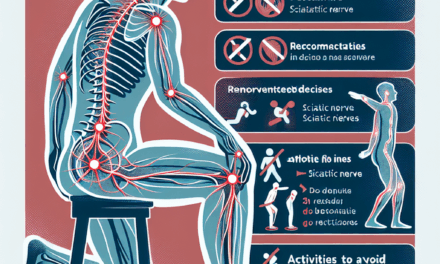The Rise of Smart Alternatives Among Health-Conscious Consumers
In recent years, there has been a significant shift in consumer behavior, particularly among health-conscious individuals. As awareness of health and wellness continues to grow, so does the demand for smart alternatives to traditional products. This article explores the rise of these alternatives, examining their impact on various sectors, including food and beverage, personal care, fitness, and technology. We will delve into the motivations behind this trend, the types of smart alternatives available, and the implications for businesses and consumers alike.
1. Understanding the Health-Conscious Consumer
The health-conscious consumer is not a new phenomenon; however, their characteristics and motivations have evolved. Today’s consumers are more informed and proactive about their health choices, driven by a combination of factors including increased access to information, a growing emphasis on preventive healthcare, and a desire for sustainable living.
- Access to Information: The internet and social media have democratized information, allowing consumers to educate themselves about nutrition, fitness, and wellness. Platforms like Instagram and TikTok have become hubs for health influencers who share tips, recipes, and workout routines.
- Preventive Healthcare: With rising healthcare costs and a focus on wellness, many consumers are prioritizing preventive measures. This includes adopting healthier diets, engaging in regular physical activity, and utilizing supplements to boost immunity.
- Sustainability Concerns: Health-conscious consumers are increasingly aware of the environmental impact of their choices. This has led to a preference for products that are not only good for their health but also for the planet.
As a result, businesses are adapting their offerings to meet the demands of this evolving consumer base. Companies are now focusing on transparency, sustainability, and innovation to attract health-conscious consumers.
2. The Food and Beverage Revolution
The food and beverage industry has seen a remarkable transformation as health-conscious consumers seek smarter alternatives to traditional products. This shift is characterized by a growing preference for organic, plant-based, and functional foods that offer health benefits beyond basic nutrition.
- Plant-Based Products: The rise of plant-based diets has led to an explosion of alternatives to meat and dairy products. Brands like Beyond Meat and Oatly have gained popularity by offering products that cater to both vegans and flexitarians. These alternatives are often lower in saturated fat and cholesterol, making them appealing to health-conscious consumers.
- Functional Foods: Foods fortified with additional nutrients, such as probiotics, omega-3 fatty acids, and vitamins, are becoming increasingly popular. For instance, kombucha, a fermented tea rich in probiotics, has gained traction as a health drink that supports gut health.
- Clean Labeling: Consumers are demanding transparency in food labeling. They prefer products with minimal ingredients that are easily recognizable. Brands that prioritize clean labeling, such as RXBAR, which lists its ingredients on the front of the packaging, are resonating with health-conscious shoppers.
Statistics support this trend: according to a report by Grand View Research, the global plant-based food market is expected to reach $74.2 billion by 2027, growing at a CAGR of 11.9%. This growth reflects the increasing acceptance of plant-based diets and the desire for healthier food options.
3. Personal Care and Beauty Innovations
The personal care and beauty industry is also experiencing a shift towards smart alternatives. Health-conscious consumers are becoming more discerning about the products they use on their bodies, leading to a demand for clean, natural, and sustainable beauty products.
- Natural Ingredients: Consumers are increasingly seeking products made from natural ingredients, avoiding synthetic chemicals and harmful additives. Brands like Beautycounter and Herbivore Botanicals have gained popularity by offering clean beauty products that prioritize safety and efficacy.
- Sustainable Packaging: The environmental impact of packaging is a significant concern for health-conscious consumers. Brands are responding by adopting sustainable packaging solutions, such as biodegradable materials and refillable containers. For example, Lush has implemented a “naked” product line that eliminates packaging altogether.
- Personalization: Advances in technology have enabled brands to offer personalized beauty solutions. Companies like Function of Beauty allow consumers to create custom hair and skincare products tailored to their specific needs and preferences.
Research indicates that the clean beauty market is projected to reach $22 billion by 2024, driven by consumer demand for safer and more sustainable products. This trend highlights the importance of innovation and transparency in the personal care industry.
4. Fitness and Wellness Technology
The fitness and wellness sector has been transformed by technology, with health-conscious consumers increasingly turning to smart devices and applications to enhance their health and fitness journeys. This trend encompasses a wide range of products, from wearable fitness trackers to mobile health apps.
- Wearable Technology: Devices like Fitbit and Apple Watch have revolutionized how individuals monitor their health. These wearables track various metrics, including heart rate, sleep patterns, and physical activity, empowering users to make informed decisions about their health.
- Fitness Apps: The proliferation of fitness apps has made it easier for consumers to access workout routines, nutrition plans, and wellness resources. Apps like MyFitnessPal and Headspace provide users with tools to track their progress and maintain a healthy lifestyle.
- Telehealth Services: The COVID-19 pandemic accelerated the adoption of telehealth services, allowing consumers to access healthcare professionals remotely. This convenience has made it easier for individuals to seek medical advice and support without the barriers of traditional healthcare settings.
According to a report by Statista, the global fitness app market is expected to reach $14 billion by 2026, reflecting the growing reliance on technology for health and fitness management. This trend underscores the importance of integrating technology into wellness strategies.
5. The Future of Smart Alternatives
As the demand for smart alternatives continues to rise, businesses must adapt to meet the evolving needs of health-conscious consumers. This involves not only innovating product offerings but also embracing sustainability and transparency in their practices.
- Emphasis on Sustainability: Companies that prioritize sustainability in their sourcing, production, and packaging will likely gain a competitive edge. Consumers are increasingly willing to support brands that align with their values, particularly regarding environmental responsibility.
- Focus on Transparency: Brands that provide clear information about their ingredients, sourcing, and manufacturing processes will build trust with consumers. Transparency is becoming a key differentiator in a crowded marketplace.
- Innovation and Adaptation: The ability to innovate and adapt to changing consumer preferences will be crucial for businesses. Companies that invest in research and development to create new products that meet the demands of health-conscious consumers will thrive in the future.
As we look ahead, it is clear that the rise of smart alternatives among health-conscious consumers is not just a passing trend; it represents a fundamental shift in how individuals approach their health and wellness. Businesses that recognize and respond to this shift will be well-positioned for success in the evolving marketplace.
Conclusion
The rise of smart alternatives among health-conscious consumers is reshaping industries and redefining consumer expectations. From food and beverage to personal care and fitness technology, the demand for healthier, sustainable, and transparent options is driving innovation and change. As consumers become more informed and proactive about their health choices, businesses must adapt to meet these evolving needs.
In summary, the key takeaways from this article include:
- The health-conscious consumer is characterized by a desire for information, preventive healthcare, and sustainability.
- The food and beverage industry is experiencing a revolution with the rise of plant-based products, functional foods, and clean labeling.
- The personal care and beauty sector is shifting towards natural ingredients, sustainable packaging, and personalized solutions.
- Fitness and wellness technology is empowering consumers through wearable devices, fitness apps, and telehealth services.
- The future of smart alternatives will be shaped by sustainability, transparency, and innovation.
As we move forward, it is essential for both consumers and businesses to embrace this shift towards smarter alternatives, fostering a healthier and more sustainable future for all.





